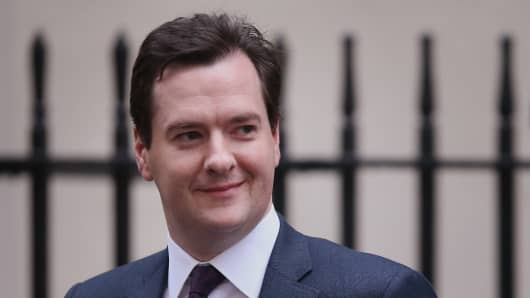George Osborne is looking at options to cut billions of pounds from next year’s benefits bill by scrapping inflation-linked rises, in a move that could trigger a fierce cabinet clash.
The chancellor is alarmed at the political and economic difficulties presented by the fact that benefits and pensions next year would rise by 5.2 percent, in line with the bumper inflation figure for September, the base month for the calculation.
The FT has learnt that Mr Osborne has asked officials to provide models for a range of alternatives models, including raising benefits in line with average earnings growth of about 2.5 percent or even freezing some payments altogether.
Iain Duncan Smith, work and pensions secretary, is said to be highly concerned about some of the proposals, especially if it appeared that the government were picking an arbitrary new model or unfairly hitting poor households.
Nick Clegg, deputy prime minister, is said to be monitoring the situation closely. The Liberal Democrats will oppose anything that suggests the coalition is unfairly passing the burden of deficit reduction on to struggling families.
“There are no firm proposals on the tables yet, but the issue has become very live,” one government official said. “Iain is not at war with George, but he is worried. It’s highly unlikely we will have a 5.2 percent across-the-board increase.”
Officially, the Treasury is sticking to the line that “the government’s policy is that benefits are uprated according to September’s inflation figure”, but officials declined to comment?on?possible?policy?changes.
Mr Duncan Smith is expected to lay an order in the Commons in December setting out the benefits and pensions increases to apply from April and is braced for what could be tense negotiations with the Treasury.
The Institute for Fiscal Studies calculates that the 5.2 percent September inflation figure – close to a 20-year high – added £1.8 billion to the benefits bill compared with previous forecasts. Economists expect inflation to drop sharply in coming months.
The IFS said that freezing all benefits and pensions – a highly unlikely outcome – would save about £10 billion, while linking the increase to wage rises would save £5 billion. Moving to an average inflation figure – calculated over six months to September – might save about £1.4 billion.


